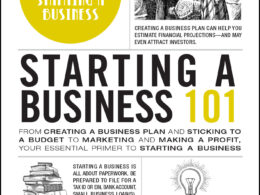One of the top questions I get asked by entrepreneurs and people working at startups is, “How do I stay motivated?” In the early days (or quite frankly, any day), starting a company and all that it entails, from building a vision to signing clients, from improving a product to growing a customer base, can feel like a slog. We do our best to make checklists and cross items off, but oftentimes we prioritize the things that are urgent rather than important. Then, weeks or months later, we look back and wonder whether any of the things we’re doing matter, because it feels like we’re constantly moving but our destination still feels hundreds of miles away. In those times, we doubt ourselves and wonder if we’re simply riding hard on the rocking horse.
As someone who has written a management book, “The Making of a Manager,” motivation is a concept I think about all the time, and something I’ve come to realize everyone struggles with from time to time, myself included.
What I’ve learned over the course of my years as a manager (and in the process of writing a book — talk about a long journey!) is that motivation is a muscle. And like any physical skill, you can improve your motivation with regular exercise.
Here are some of the ways I’ve learned to strengthen that muscle and improve my motivation:
Create the smallest first step, and just start
One of the biggest challenges to overcome is the inertia at the beginning. Things always seem more daunting in the abstract, whether it’s building a business or getting past the daily “how do I stay productive in the next six hours?” But once I start, I always feel a small sense of satisfaction in getting things going, and the momentum is easier to maintain after that.
The most effective tactic I’ve found to get started is to set an easily-achieved first “micro-goal.” This might be writing down the three main points I want to make to kickstart my larger goal of writing an essay or constructing a presentation, or researching a competitor’s outreach strategy before planning for my larger goal — my product’s marketing campaign. Usually after the three bullets are complete, or I’ve sunk my teeth into an analysis, I’ve got enough momentum going that sticking with what I’m working on seems far more feasible.
Related: Co-Founders of TheMuse.com Share the New Rules of Productivity
Visualize the process, not just the destination
While people often say “visualize what success look like,” I’ve always found that advice to be unhelpful. If I’m starting a project and success will take months or years to achieve, this end-state visualization can feel demoralizing and overwhelming. I find it much more helpful to imagine the process.
What are the first few steps that will help you get from where you are to where you want to be?
Can you jot down a quick timeline for the next three steps in testing your product? Breaking down a big journey into a series of smaller milestones and imagining how it will feel to achieve each milestone feels more realistic and inspiring. I also try to visualize how it will feel to learn and improve during each of those steps, because no matter where I end up, the things I learn along the way are mine to keep forever. Painting these small pictures of myself actually doing the work helps me realize my overarching goal is just a series of small, completely achievable actions.
Set time on your calendar
This is a key tactic I use to find time for goals that are important and meaningful to me. I proactively block out a few hours on Saturday or Sunday afternoons when my kids are napping to work on a project, and I protect that time carefully. When the inevitable “urgent” email comes in, I’m able to look at it, assess it, and figure out how it will fit into my day before or after that block.
Think of your work in time boxes
I like to be intentional in my relationship with time so that I don’t look at the clock and think, “Woah, where did those four hours go?!” I work around this by plotting out the next few hours, specifying how long I want to spend on each of my tasks, and giving myself aggressive but achievable estimates for each chunk. Then, I’ll set timers to help keep me ahead of the clock, and I’ll track how long I actually spend on each task. While at first this can lead to disappointment — “Why is everything taking longer than I expect?!” — with practice I’ve calibrated more accurate estimates. And, in all cases, being able to tell myself “you’ve only got 28 more minutes to put this presentation together” can provide a healthy dose of focus.
Quiet your inner critic
Yes, we all have one. Even the most successful people in the world have that little voice in their head telling them they’re an imposter. If this sounds familiar, try breaking this cycle of self-doubt by reminding yourself that the narrative in your head is coming from a place of fear rather than rationality. I keep a folder of compliments that other people have given me over the years (thank you notes, praise from peer reviews, nice things others have said about me) that I flip to in times when I need a boost. I also imagine my heroes, those I admire the most in the world, and recall the stories of how they, too, fought battles of fear and self-doubt to remind myself that these feelings are universal.
As Nelson Mandela said, “I learned that courage was not the absence of fear, but the triumph over it. The brave man is not he who does not feel afraid, but he who conquers that fear.”
Reward and take care of yourself
Life shouldn’t be all about the work and the hustle. Rewards matter. In the time blocks I set, I remember to also carve out time for breaks and self-care. Sometimes it’s small, like a few minutes to look at photos or videos of my kids on my phone, or 10 minutes to walk around outside or eat a snack. Other times, it’s the satisfaction of being able to focus my mind wholly on something else for the rest of the day or weekend or vacation.
There’s a lot of advice out there that in order to succeed, you need to dedicate yourself 110 percent, with the insinuation that any moments of indulgence should be considered a guilty past time. I disagree. I’ve tried enough times to push myself to continue working when I didn’t feel well, or when I was stressed beyond an ability to focus, to know that all it does is waste my time, make me less productive overall, and hurt those around me. We only have one life to live, and it says something that one of the most common regrets people have on their deathbed is that they focused too much on work and not enough on relationships. The journey in and of itself should be rewarding and fun.
Set the mood with music
Ambiance is everything and music is a big part of my productivity. I have different playlists for different kinds of projects that help pump me up. In particular, the Daft Punk “Tron: Legacy” soundtrack gets heavy rotation.
Seek social support
It’s dangerous and lonely to rely solely on yourself. Share your goals and progress with the people closest to you so that they can support you along the way. I can’t recall how many times a friend has helped me out of a bind, whether by giving me a brilliant idea, providing a healthy dose of much-needed perspective, or simply listening and reminding me that I’ve got this. Don’t be afraid to ask for help when you need it, even if all you need is someone to listen.
Sign Up: Receive the StartupNation newsletter!
Create an environment that allows you to be your best
Over the years, I’ve learned a lot about what enables me to do my best work and where I often fall into traps of distraction. For example, I know I need eight hours of sleep to feel my best. I know that I like to be prepared for meetings and that I don’t do well “winging it.” As a result, I craft my schedule and my habits around those quirks.
For example, I set up multiple “prepare for bed” alarms at 10 p.m., 10:15 p.m., 10:30 p.m. and 10:45 p.m. so that I am in bed at 11 p.m. I’ll set “thinking blocks” on my calendar to prepare for the various meetings ahead. I’ll reflect on moments where I’m hyper-productive and moments where I struggle to finish anything, and try to dissect what about my environment might have contributed to that so I can make adjustments in the future.
If all else fails, ask yourself if you’re trying to win the wrong game
If no amount of effort can motivate you, there may be something flawed in your premise. Is the goal you set for yourself something you authentically want, or are you pursuing it because you think you should want it?
While the techniques above can help fend off some temporary downswings, there’s no replacement for intrinsic motivation. Do you truly enjoy what you’re doing? Are you passionate about it? Or are you falling into the obligation of “I should?” Reflect on what really matters to you and why, and use that to guide your actions. Life’s too short to be stuck doing something that doesn’t truly speak to your strengths and interests.
“The Making of a Manager” is available now at fine booksellers and can be purchased via StartupNation.com.






